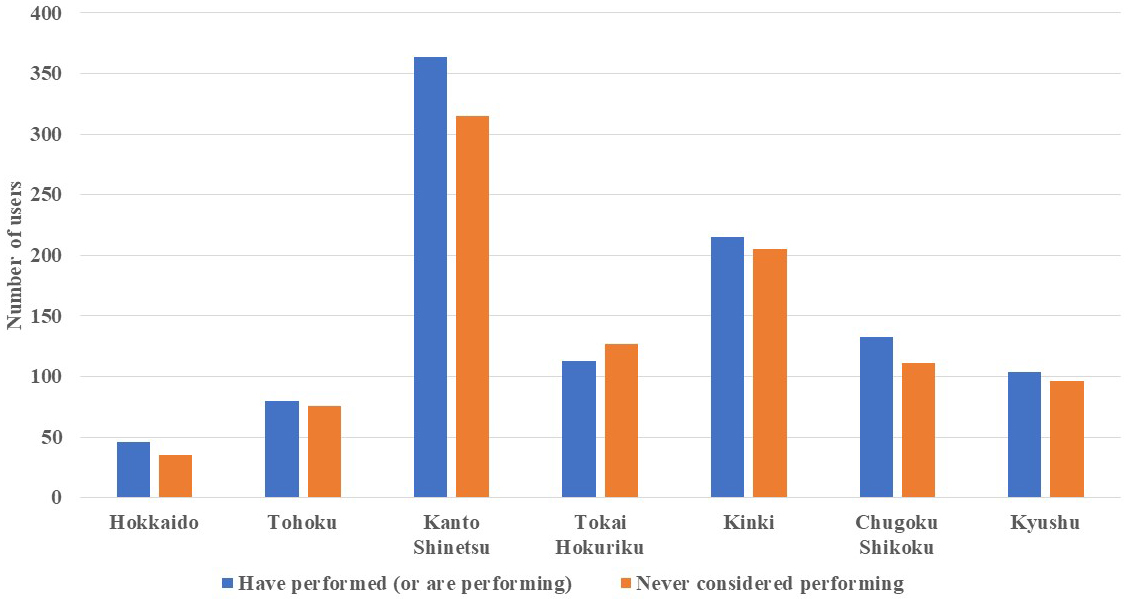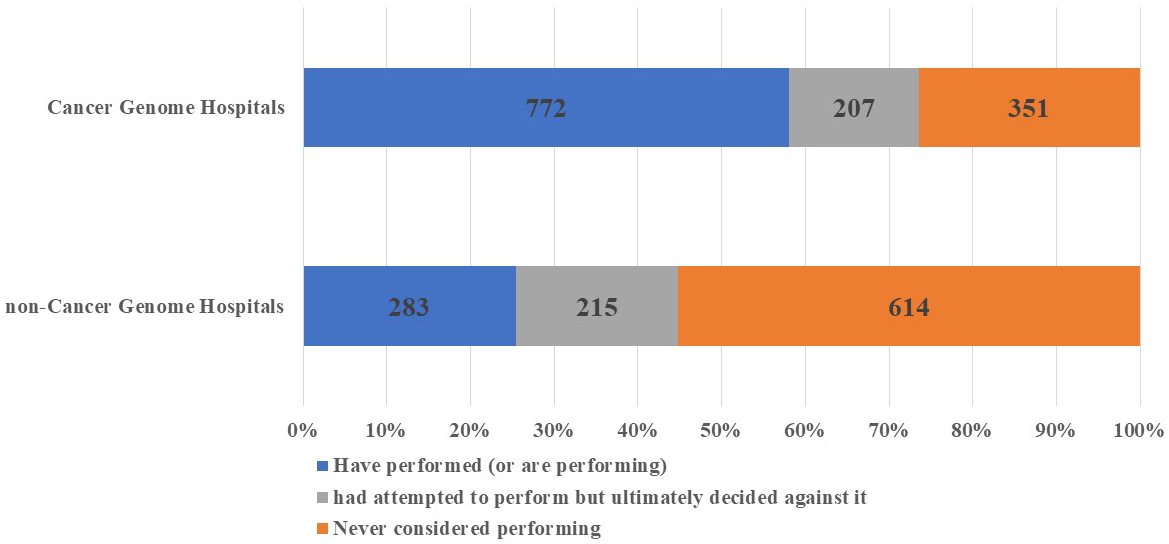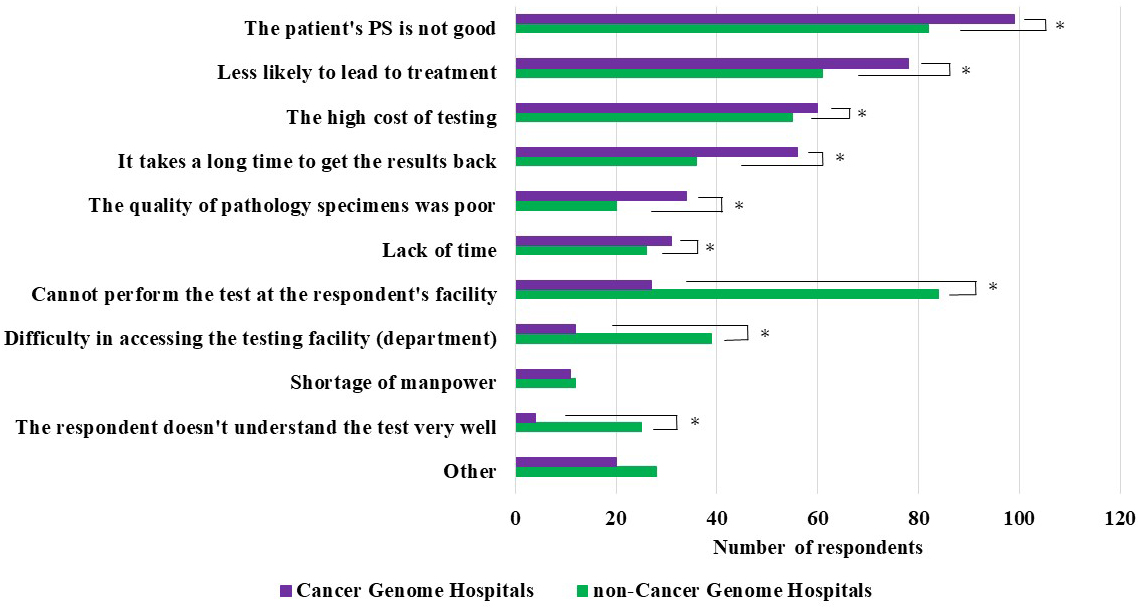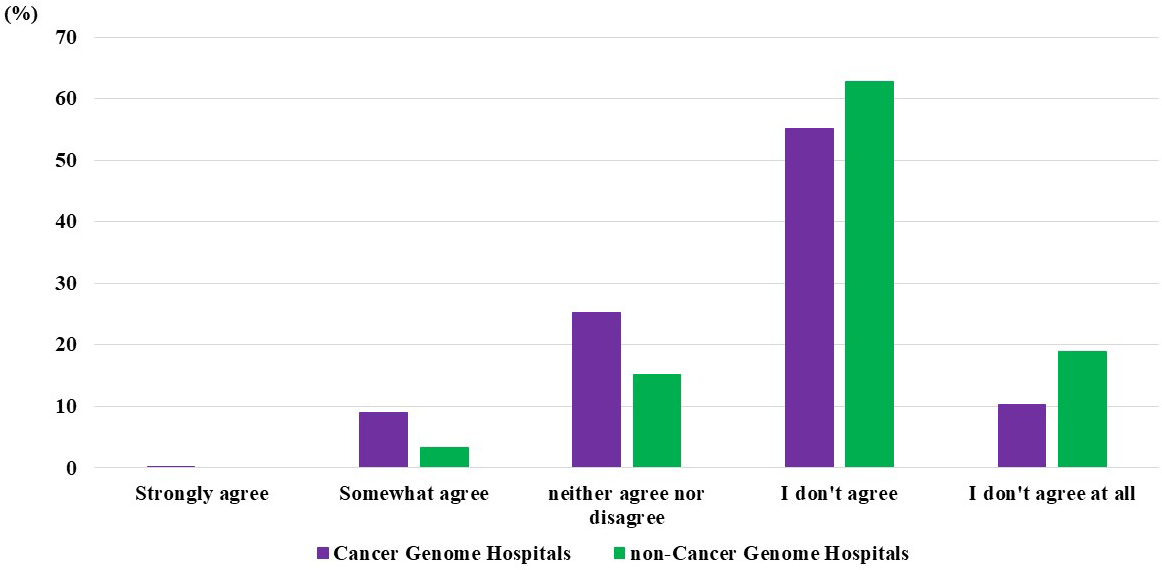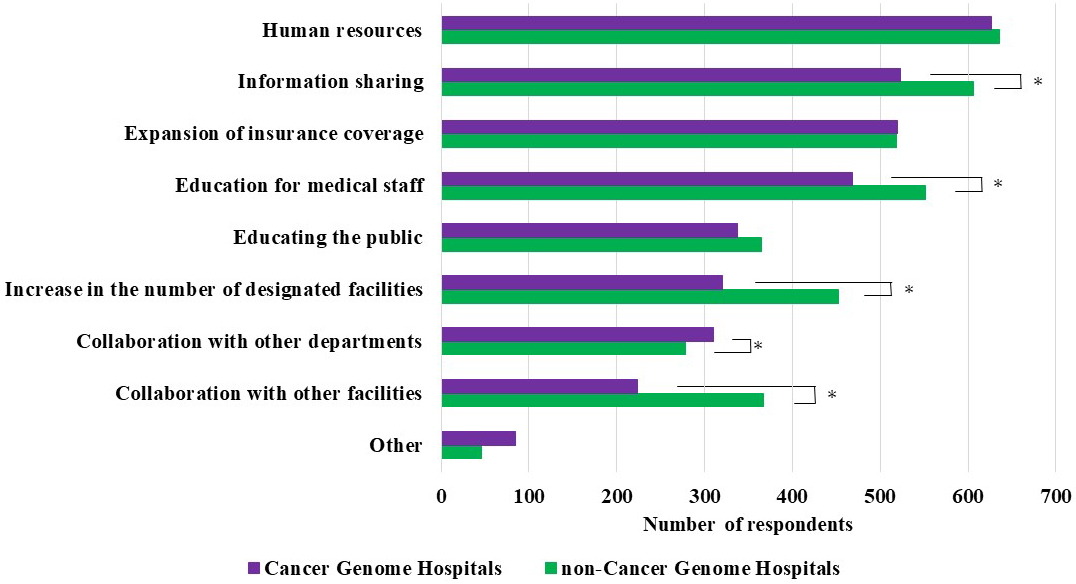Figure 2. Number and Percentage of Physicians Using Cancer Gene Panel Tests by Region
Prefectures included in each region.
Hokkaido (Hokkaido), Tohoku (Aomori, Akita, Yamagata, Iwate, Miyagi, Fukushima), Kanto-Shinetsu (Gunma, Tochigi, Ibaraki, Saitama, Chiba, Tokyo, Kanagawa, Yamanashi, Nagano, Niigata), Tokai-Hokuriku (Toyama, Ishikawa, Gifu, Shizuoka, Aichi, Mie), Kinki (Fukui, Shiga, Kyoto, Osaka, Hyogo, Nara, Wakayama), Chugoku-Shikoku (Tottori, Shimane, Okayama, Hiroshima, Yamaguchi, Tokushima, Kagawa, Ehime, Kochi), Kyushu (Fukuoka, Saga, Nagasaki, Kumamoto, Oita, Miyazaki, Kagoshima, Okinawa).
From: Japanese General Clinical Oncologists’ Knowledge and Real-world Experiences of Cancer Genomic Medicine: A Nationwide Web-based Survey Study
